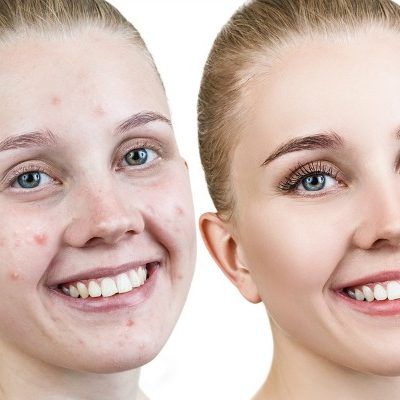Acne is a widespread skin concern, but it can be especially challenging for athletes who deal with constant sweating, tight clothing, and heavy gear. Whether you’re a professional or a fitness enthusiast, your lifestyle could be triggering or worsening acne breakouts. Factors like prolonged sweat exposure, clogged pores, friction from helmets or straps, and bacteria accumulation on skin-contact surfaces play a significant role. Understanding how to manage these triggers is key to maintaining clear, healthy skin. For individuals facing persistent breakouts, especially those with an active lifestyle, professional Acne Treatment In Islamabad can offer lasting relief through medically guided care.
Why Athletes Are More Prone to Acne
Athletes are more vulnerable to acne for several reasons related to their training environment and the gear they use:
1. Excessive Sweating:
While sweating is a natural process that helps regulate body temperature, it also creates a warm and moist environment that encourages the growth of acne-causing bacteria. Sweat can mix with dirt, oil, and dead skin cells, leading to clogged pores if not promptly washed off.
2. Occlusive Sports Gear:
Helmets, chin straps, shoulder pads, and tight-fitting athletic wear can trap sweat and bacteria against the skin. Repeated friction and pressure, particularly in areas like the forehead, back, and shoulders, can lead to “acne mechanica”—a type of acne caused by physical irritation.
3. Poor Hygiene Practices Post-Workout:
Not showering immediately after training or leaving sweat-soaked clothes on for extended periods can increase the risk of breakouts. Bacteria multiply rapidly in moist conditions, and the longer it stays on the skin, the more damage it can do.
4. Shared Equipment:
Athletes who use communal gym equipment, mats, or gear can expose their skin to bacteria, fungi, and other microorganisms. Without proper cleaning, these surfaces can become breeding grounds for breakouts.
Areas Commonly Affected
Athletes often experience acne on parts of the body that experience the most friction or remain damp the longest:
- Face: Helmets, headbands, and sweatbands trap moisture and cause pressure on the skin, especially the forehead, cheeks, and jawline.
- Back and Chest: Tight workout tops, sports bras, and backpacks can cause body acne due to pressure and sweat.
- Shoulders and Neck: Common friction points due to shoulder straps or sports pads.
How to Prevent Acne as an Athlete
Prevention is the best strategy when it comes to acne in athletes. Small changes in hygiene and skincare routines can make a significant difference.
1. Shower Immediately After Training:
Use a gentle, non-comedogenic cleanser after every workout to remove sweat, oil, and bacteria. Avoid overly harsh soaps, which can strip the skin of natural oils and lead to further irritation.
2. Use Non-Comedogenic Skincare and Body Products:
Look for labels that say "non-comedogenic," which means the product won’t clog pores. This includes sunscreens, moisturizers, and body washes. Choose oil-free options that suit acne-prone skin.
3. Wear Breathable Clothing:
Opt for moisture-wicking and breathable fabrics that allow sweat to evaporate instead of remaining trapped against the skin. Avoid wearing sweaty gear or uniforms for longer than necessary.
4. Clean Gear Regularly:
Helmets, straps, yoga mats, and other gear that come into contact with the skin should be cleaned and sanitized regularly. Avoid sharing personal equipment to reduce the risk of bacterial contamination.
5. Apply Acne-Fighting Ingredients:
Products containing salicylic acid, benzoyl peroxide, tea tree oil, or glycolic acid can help keep pores clear. Use these on acne-prone areas after workouts, but avoid overuse to prevent dryness or irritation.
6. Manage Shaving and Hair Products:
For athletes who shave frequently, it’s important to use clean razors and avoid products with heavy oils. Hair gels and sprays can drip onto the face during workouts, clogging pores—especially around the hairline.
When Acne Becomes Persistent
If you're an athlete dealing with persistent or cystic acne, despite your best hygiene practices, it may be time to consider professional treatment. Athletes may require a combination of topical and oral treatments based on the severity of their condition. Dermatologists can identify whether your acne is due to bacterial buildup, hormonal imbalance, or mechanical irritation, and offer targeted solutions.
Some treatment options include:
- Topical Retinoids: Effective in promoting skin cell turnover and preventing clogged pores.
- Benzoyl Peroxide Washes: Antibacterial and anti-inflammatory properties ideal for body acne.
- Oral Antibiotics: For moderate to severe acne, these reduce inflammation and bacterial growth.
- Chemical Peels: Help exfoliate dead skin cells and unclog pores, often used for facial acne.
- Laser Therapy: Targets inflammation and bacteria without harming surrounding skin.
Impact on Athletic Performance and Confidence
Though acne doesn’t directly affect physical performance, it can impact self-esteem and concentration. Visible acne on the face or body may make athletes self-conscious, especially during competitions or media appearances. Additionally, painful lesions caused by acne mechanica can interfere with comfort and focus.
Adjusting Skincare for Athletic Lifestyles
Morning Routine:
- Use a mild cleanser and lightweight, non-comedogenic moisturizer
- Apply broad-spectrum sunscreen if exercising outdoors
- Use a mattifying product to reduce sweat-related shine
Pre-Workout Prep:
- Remove heavy makeup or thick skincare products
- Wear clean, breathable clothing
- Use a headband to keep hair and sweat off the face
Post-Workout Routine:
- Cleanse immediately after training
- Use an exfoliating toner with salicylic acid once or twice a week
- Moisturize with a product suited for acne-prone skin
Athletes with dry skin due to harsh environments or frequent washing should ensure hydration isn’t compromised. Acne-prone doesn’t mean oil-free—balancing moisture is essential for healing and protection.
Conclusion
Athletes face unique skincare challenges due to their rigorous physical activities, gear usage, and environmental exposures. Sweat, friction, and bacterial buildup can all contribute to acne flare-ups, making prevention and proper skincare essential. Through conscious hygiene practices, suitable product choices, and professional dermatological guidance, athletes can maintain clear skin without compromising their performance. Those who require medical attention should consider visiting the SKN Cosmetics clinic for expert evaluation and tailored Acne Treatment In Islamabad that addresses their specific needs, skin type, and lifestyle.





Comments